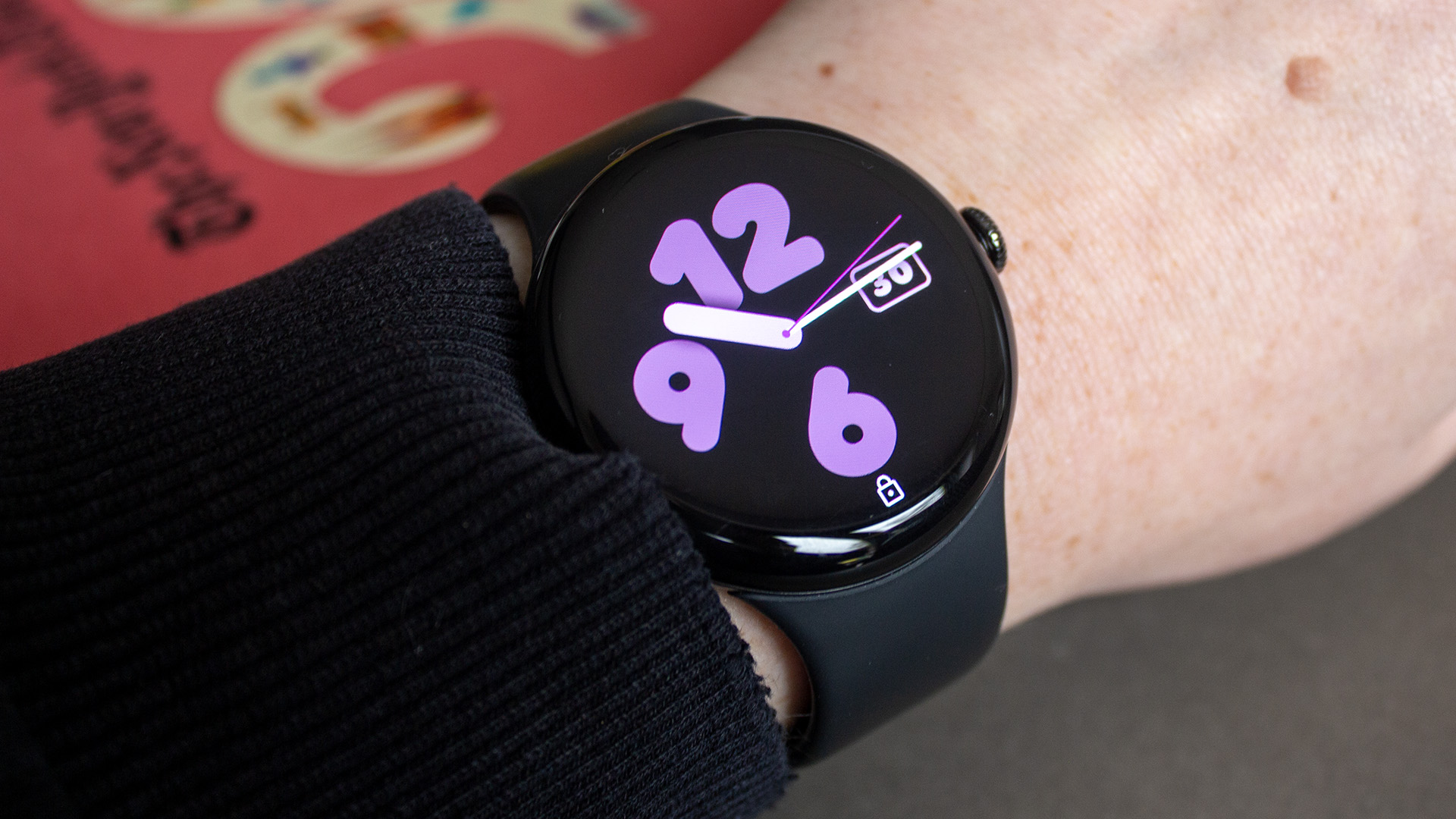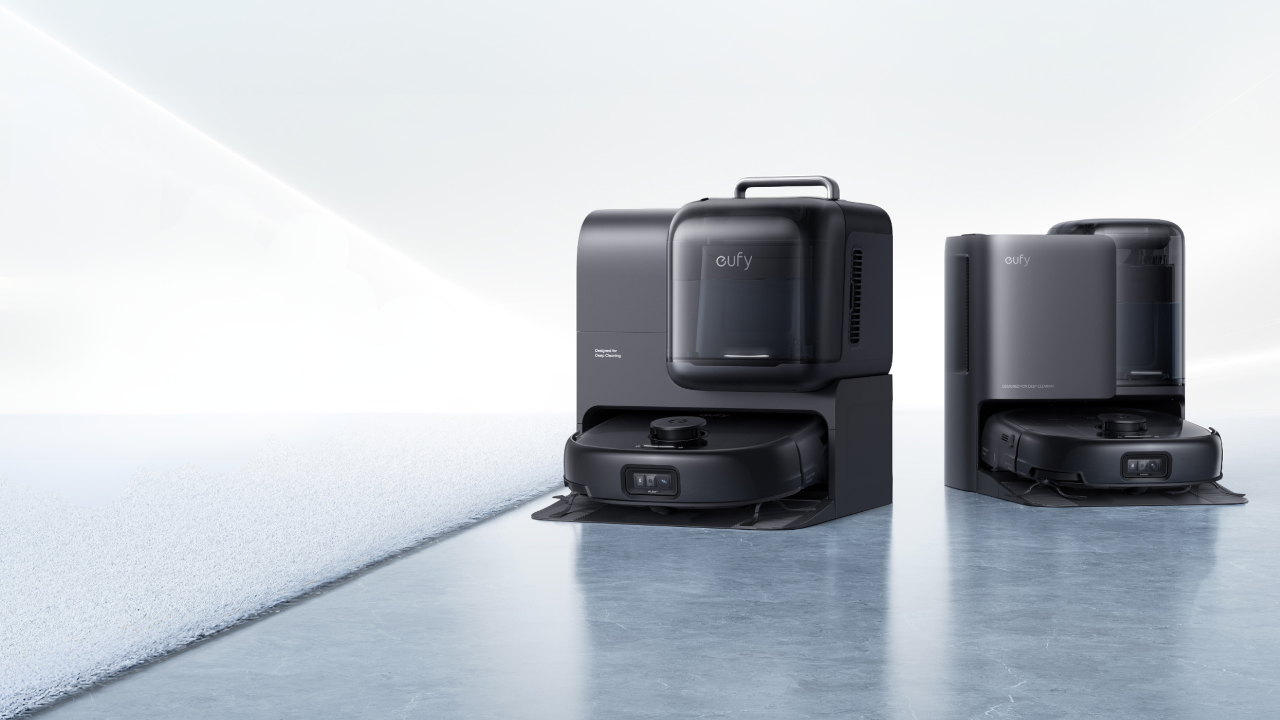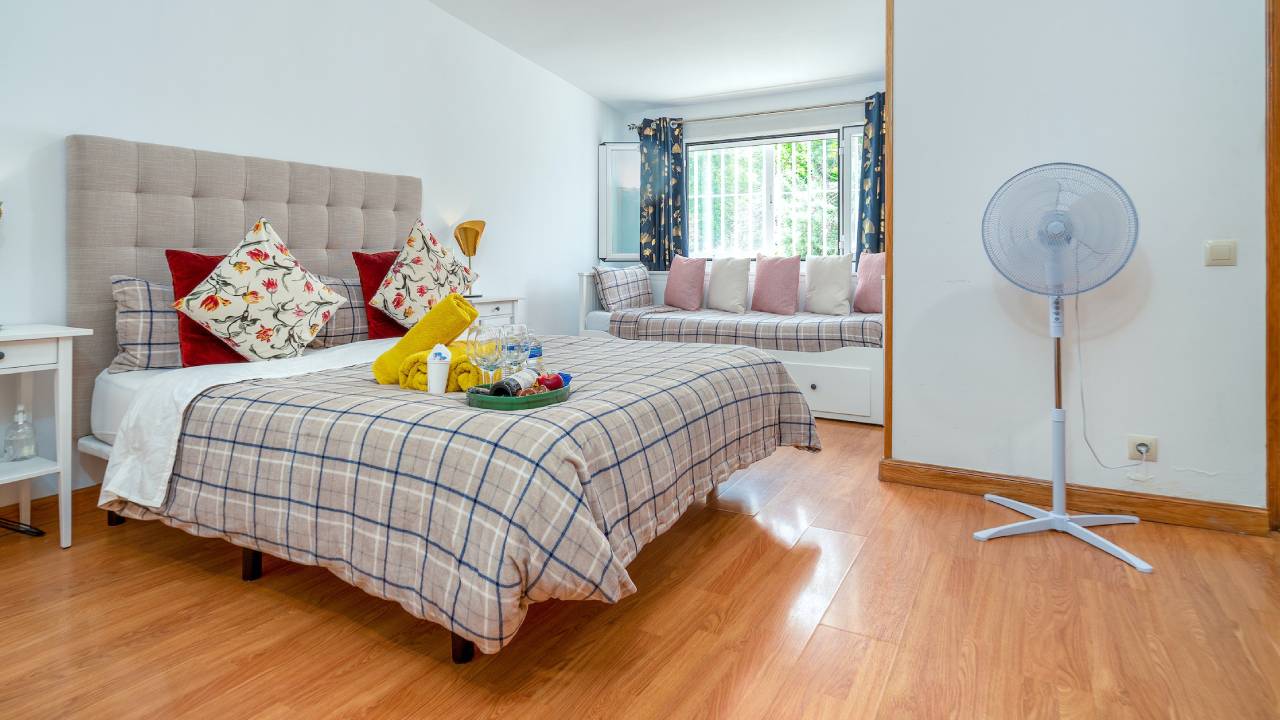

After the abysmal weather the UK has had so far this year, I'm definitely not complaining about the glorious heatwave we're currently experiencing. But it can be a little tricky to get to sleep when the weather is scorching. To deal with hot sweaty nights, many people are leaning towards the best fans or the best portable air conditioners throughout the day and into the night.
And that’s the best way to handle the heat, right? Wrong! It turns out experts are warning people against sleeping with a fan on at night. Despite fans providing a gentle cooling breeze, fans and air conditioners can actually disrupt your sleep and make you feel sore and tired the next day.
To explain more, here are four reasons why you shouldn’t be using a fan at night. Unsurprisingly, not everyone will listen to this advice so to put you at ease, I've also included four reasons why you should use a fan at night, too.
Why you shouldn't sleep with a fan on
1. Triggers allergies
The main reason you shouldn’t be sleeping with a fan on is because it can trigger allergies. As a fan circulates air around the room to give that cooling effect, it also moves dust, pollen, spores and other allergens which can find its way into your sinuses. For those who suffer from hay fever, asthma or other allergies, this can exacerbate your current symptoms, cause an allergic reaction or leave you feeling congested and uncomfortable.
If you can’t live without a fan at night, a good way to fight this is to clean your home regularly to remove all dust and dirt. In addition, running the best air purifier can help remove any allergens, and you should make sure your fan is as clean as possible. Regardless of whether you’ve got an AC unit built into your house or the best Dyson fan at your disposal, if they’re dirty, they’re not doing you any good, especially while you're sleeping.
2. Stiff muscles and cramping
The cool temperatures and breeze of your fan can lead to stiff muscles and cramping if you sleep with it on at night. Although many experts say that sleeping in a cold room is better for you, the concentrated cold air of your fan can cause your muscles to cramp which will leave your body feeling sore and achy in the morning.
Depending on where you position your fan, the cool breeze can affect multiple parts of the body, but the neck and back are the most affected. To solve this problem, try placing your fan in a different direction, ideally away from your bed, so you’re not getting the full icy blast but instead, the room is what’s cooling you down.
Sign up to the T3 newsletter for smarter living straight to your inbox
Get all the latest news, reviews, deals and buying guides on gorgeous tech, home and active products from the T3 experts
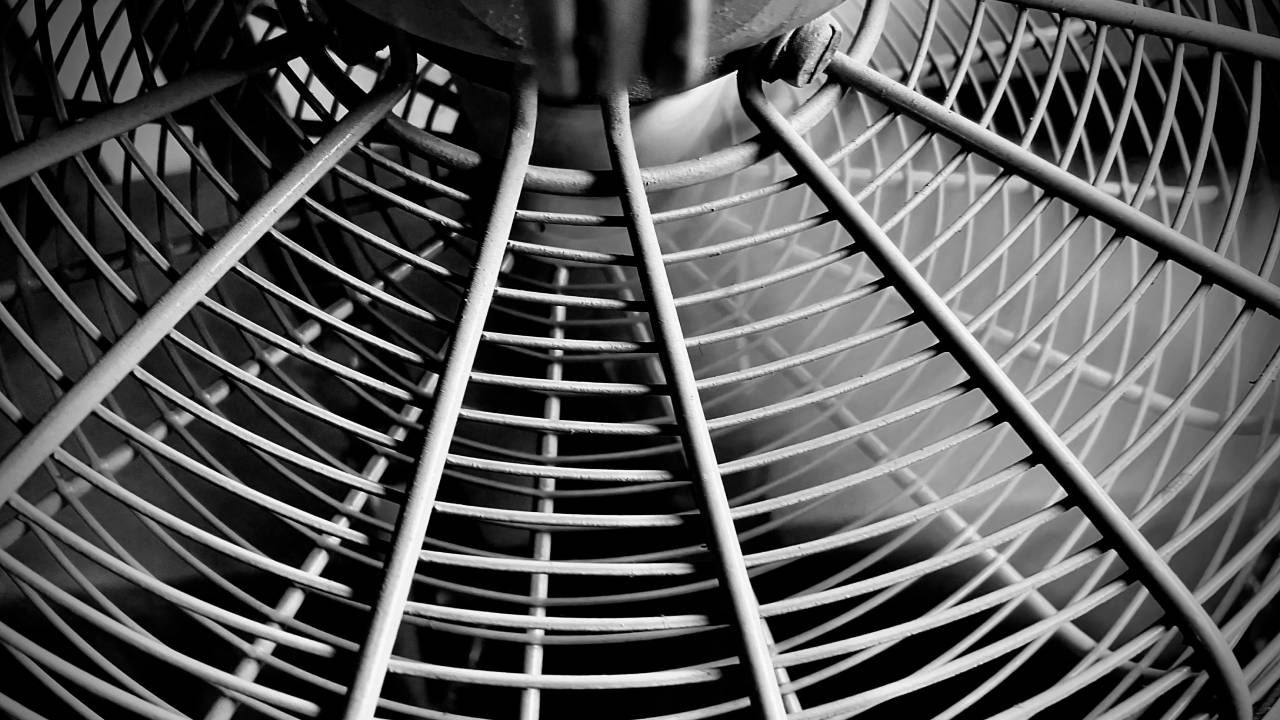
3. Dries out skin, eyes and mouth
If your fan is directed towards your face and body, the cold air can cause your skin, eyes and mouth to dry out. The intensity of the cool airflow on the body can leave your skin feeling and looking dehydrated, and if you’re prone to dry skin or eczema, this can make you feel itchy and uncomfortable. Some people sleep with their eyes slightly open so a fan can dry out the eyes and make them feel irritated. Similarly, for those who sleep with their mouth open, the fan’s air can dry out your mouth, tongue and throat which disrupts sleep, encourages bad breath and feels sore.
The best moisturisers can help bring back your skin’s moisture levels, as will the best eye cream. But, the best way to prevent dryness from your fan is choosing one that oscillates. Having a rotating fan means the air isn’t fixed on one spot and spreads air around the room which can cool you down more effectively.
4. Expensive bills
Putting health and wellness aside, running your fan or AC unit throughout the night can be expensive. Using it for 8-10 hours can rack up your energy bills and strain your cooling system, causing it to break quicker and negatively impact its power and output. If you want to use your fan for several hours a day, you should figure out how much energy your fan is using before you decide to have it on overnight. To do this, you need to check the wattage of your fan and convert the wattage into kilowatts by dividing the wattage by 1,000 to find the amount of energy used per hour, according to Ideal Home.
It’s also worth noting that many fans have energy-saving features. Depending on the fan you have, some models consume less energy but still give a powerful output, and you can set timers so they start and stop for a certain amount of time.
Why you should sleep with a fan on
1. Cooling relief from the heat
The most obvious reason for using a fan at night is because it cools you down. Sleeping in the heat isn't the most pleasant feeling in the world, and when it's super hot, you'll often be left feeling sticky, sweaty and uncomfortable. If you experience this when you sleep in the heat, it can cause massive disruptions and leave you feeling exhausted in the morning. So, having a fan in your room can help you manage the heat better, cool your entire room and help you sleep better.
2. Freshens stale air
There are many tips and tricks for avoiding getting the heat in your room during the day, including keeping the blinds drawn and windows closed. And while this can be effective, it can also make your room feel stuffy and stale, which isn't pleasant to sleep in during the night. Having a fan running with constant gusts of air can freshen the air quality and get rid of unpleasant and unwanted odours. Not only will this make your room more comfortable to sleep in, but it makes the air you breathe more hygienic.
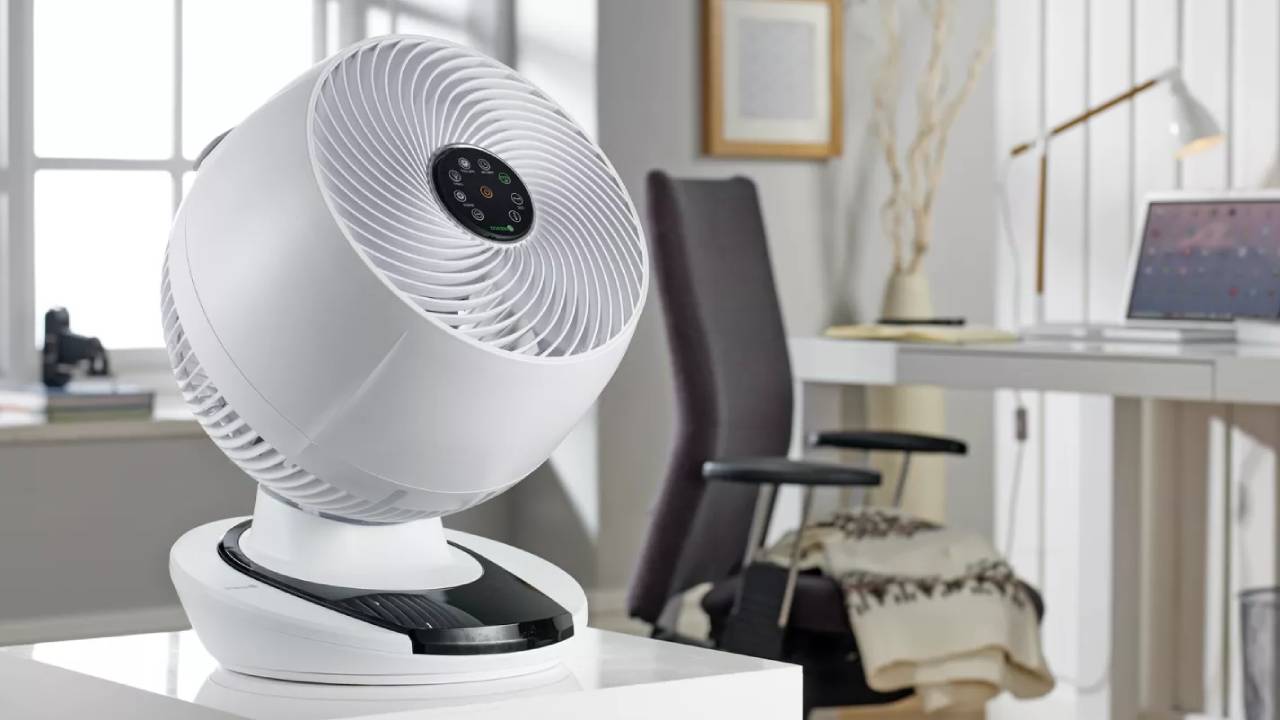
3. White noise
For some sleepers, having a white noise machine on in the background can help them fall asleep quicker and rest better. White noise can be extremely calming and it can block out other sounds to create a more relaxing sleep environment. The subtle sound that a fan makes can act as white noise, so while it works to cool you down, the noise of your fan can also coax you into dreamland.
4. Good alternative to opening windows
Sleeping with the windows open isn't for everyone, and especially not during the summer or heatwaves. The main reason for this is bugs will let themselves in through open windows, keeping you up at night by their buzzing and infesting your home. If you live in a busy area, having your window open at night can disturb your sleep, so keeping them shut and using a fan instead can solve all these problems!
See 5 ways to save money on fans and air conditioners for more tips, and if your fan is lacking in power, check out our guide on how to make your fan cooler.

Beth is Home Editor for T3, looking after style, living and wellness. From the comfiest mattresses to strange things you can cook in an air fryer, Beth covers sleep, yoga, smart home, coffee machines, watches, grooming tools, fragrances, gardening and much more. If it's something that goes in your house, chances are Beth knows about it and has the latest reviews and recommendations! She's also in the know about the latest deals and discount codes from top brands and retailers.
Having always been passionate about writing, she’s written for websites, newspapers and magazines on a variety of topics, from jewellery and culture, to food and telecoms. You can find her work across numerous sites, including Wedding Ideas Magazine, Health & Wellbeing, The Bristol Post, Fashion & Style Directory, TechRadar, CreativeBloq and more. In her spare time, Beth enjoys running, reading, baking and attempting craft projects that will probably end in disaster!
-
 I spent 6 weeks with the FoodMarble Aire 2: here’s what I learned about my gut health
I spent 6 weeks with the FoodMarble Aire 2: here’s what I learned about my gut healthI’ve been testing the clever breath-testing gadget with the companion app over several weeks to find out if it delivers on its promises
By Lee Bell
-
 Oil pulling is going viral on TikTok for stopping morning breath – but does it actually work?
Oil pulling is going viral on TikTok for stopping morning breath – but does it actually work?4 hacks that prevent morning breath, according to a sleep expert
By Bethan Girdler-Maslen
-
 These limited edition McLaren x Loop earplugs are what you need for Formula 1 season
These limited edition McLaren x Loop earplugs are what you need for Formula 1 seasonMcLaren teams up with Loop on limited edition noise-reducing earplugs
By Bethan Girdler-Maslen
-
 5 sleep supplements that help me achieve 8+ hours of rest every night
5 sleep supplements that help me achieve 8+ hours of rest every nightIt took me years to perfect my sleep routine – here are the supplements that helped
By Lizzie Wilmot
-
 3 reasons why you wake up at 3am every night – and how to avoid it
3 reasons why you wake up at 3am every night – and how to avoid itAlways waking up in the middle of the night? This could be why…
By Bethan Girdler-Maslen
-
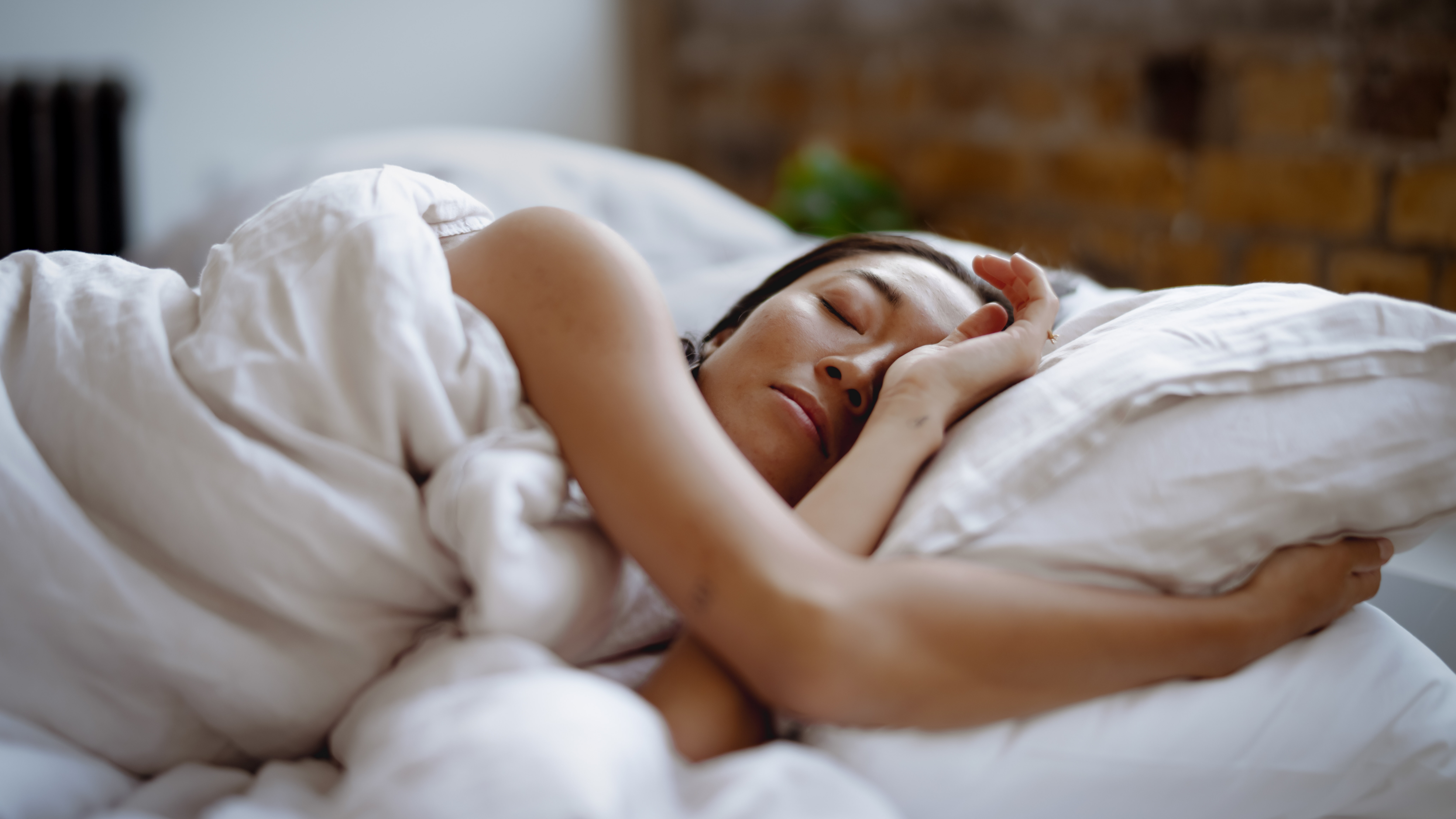 This tiny device will automatically disable your distracting apps before you sleep
This tiny device will automatically disable your distracting apps before you sleepSay hello to Kip...
By Lizzie Wilmot
-
 Therabody experts give 7 tips for perfecting your sleep routine for World Sleep Day
Therabody experts give 7 tips for perfecting your sleep routine for World Sleep DayFrom breathing exercises to sleep masks, here’s how to prioritise sleep, according to experts
By Bethan Girdler-Maslen
-
 Loop Dream review: super soft earplugs to help you snooze soundly, even if you’re a side sleeper
Loop Dream review: super soft earplugs to help you snooze soundly, even if you’re a side sleeperSquishy silicone and uniquely shaped ear tips take Loop’s nighttime earplugs to dreamy heights
By Joanna Ebsworth
